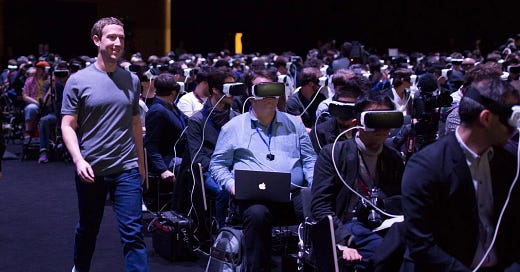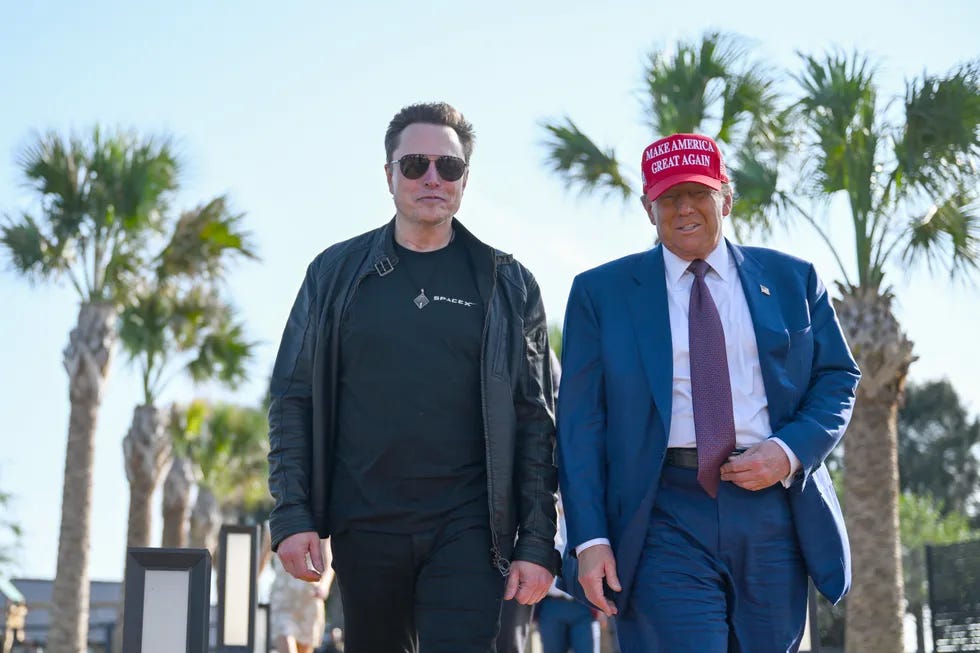Since the publication of 1984, George Orwell’s vision of a tyrannical dystopia has loomed large in the cultural imagination. Societies have long feared the arrival of an all-encompassing surveillance state, where truth is erased, freedom extinguished, and fear used as the ultimate tool of control. Over the decades, critics and commentators have repeatedly claimed that Orwell’s dark prophecy is coming to pass. Yet, despite these warnings, the world Orwell described - a society ruled by absolute oppression, enforced ignorance, and the suppression of thought - has not fully materialised. While elements of his vision may resonate in certain aspects of our modern world, the reality we face is far removed from Orwell’s totalitarian nightmare.
Instead, our world more closely resembles the vision of Aldous Huxley’s Brave New World, a timely counterpart to 1984, in which control is maintained not through the infliction of pain, but through the boundless provision of pleasure. Where Orwell envisions control through overt repression, fear and surveillance, Huxley depicts a society pacified by the systematic reinforcement of desirable behaviour. Orwell’s concern was that the truth would be concealed from us. Huxley feared it would be lost amid a flood of triviality.
Today, much like in Huxley’s vision, we are not ruled by the tyranny of an iron fist but by the seduction of comfort. Our actions are not dictated by an external force but guided by desires we willingly embrace. Rather than being deprived of information, we are inundated with an abundance that reduces us to a state of eternal distraction.
In Huxley’s world, stability is the ultimate goal - the foundation on which the World State builds its entire system of control. To achieve this, citizens are biologically engineered from birth to fit predetermined roles within society. From birth, sleep-conditioning programmes instill societal norms, such as consumerism and conformity, through repeated slogans like “everyone belongs to everyone else.” This conditioning eradicates individuality and ambition, replacing them with a passive acceptance of the status quo. By these means, Huxley envisions a future where the ruling class can maintain control without the need for ruthless dictatorship. Instead, citizens willingly surrender their autonomy, growing to “love their servitude” and never questioning the forces that shape their lives.
In the modern world, we are also subject to methods of social conditioning, but a key difference lies in the agents who exert control. Whereas in Huxley’s vision control remains with a central governing authority, control in our world is more subtle and decentralised. It arises not from a single governing body but from a host of tech companies seeking profit. By capturing and commodifying human attention, these companies have successfully conditioned behaviour in ways that ensure engagement and dependency.
Huxley himself recognised the early workings of this as early as 1958 in Brave New World Revisited, in which he returns to assess his prophecy after nearly 30 years:
“Impersonal forces over which we have almost no control seem to be pushing us all in the directions of the Brave New Worldian nightmare; and this impersonal pushing is being consciously accelerated by representatives of commercial and political organisations who have developed a number of new techniques for manipulating, in the interests of some minority, the thoughts and feelings of the masses.”
This conditioning, in our digital age, is driven by the algorithms behind our devices and social platforms. As the richest companies in the world, the likes of Meta and Google have access to the most talented behavioural scientists on the planet, tasked with designing systems capable of nudging human behaviour towards repeated engagement with their services. It is their job, above all else, to convince society that our highest sense of living can be found through the comfort of a screen.
Today’s algorithms do not merely respond to our preferences, they actively influence and shape them over time. More than this, they work to make each of us more predictable, eroding autonomy and individuality as our behaviour increasingly aligns with predefined patterns. Just as predictability allows the World State to maintain their goal of stability, it serves too as a means for tech giants to maximise engagement and profitability. When our preferences and behaviours are consistent and foreseeable, platforms can fine-tune their algorithms to deliver the perfect content to keep us engaged longer. (As I’ve covered before, this often translates to sensationalist clickbait designed to induce fear, anger or hatred).
Alongside this algorithmic persuasion, conformity in the digital age is driven by powerful social and psychological forces. One of the most notable is the French philosopher René Girard’s theory of mimetic desire, which posits that humans learn what to desire by observing the desires of others. In today’s hyperconnected world, this process is amplified by constant exposure to the curated lives and aspirations of others on social media. At the expense of genuine self-expression, users increasingly mimic the lifestyles, values and beliefs they see celebrated online, creating a homogonised culture shaped by imitation rather than individuality.
Complementing this is the human need for social approval, which social media platforms have turned into a quantifiable metric through likes, shares and followers. These visible forms of validation condition users to conform to trends, opinions, and behaviours that garner positive reinforcement. The desire to fit in and avoid exclusion drives participation in viral challenges, popular aesthetics and groupthink, further eroding individuality. Over time, the pursuit of social approval fosters a culture where alignment with societal norms is prioritised over authenticity, encouraging people to seek acceptance rather than express their true selves.
A key tenet that ties these two worlds together is the prioritisation of short-term pleasure and instant gratification over the pursuit of long-term goals and fulfilment. In Brave New World, the state freely distributes soma, a drug that provides instant happiness while suppressing negative emotions. At the slightest hint of discomfort or boredom, citizens retreat to the solace of soma, suppressing any unease and deepening their dependance on the state’s engineered happiness. Abundant and readily available, soma allows them to perpetually avoid the challenges of reality, living instead in a state of artificial tranquility.
Our phones today function in much the same way. At the first sign of boredom, we instinctively reach for them, finding instant relief from discomfort. Just as soma allows users to “take a holiday from reality”, our phones provide a convenient escape from the struggle of daily life. Rather than learning to endure the inevitable hardship life throws at us, in each of our pockets lives the ultimate distraction that allows us to retreat back into a comfortable world where failure and rejection can’t reach us.
Crucially, this struggle isn’t limited to grand, life-altering challenges. It lies in the small, everyday moments we avoid - from completing mundane tasks to simply sitting with the stillness of uninterrupted silence. In avoiding these moments, we lose the opportunity to cultivate resilience and the self-awareness that comes from embracing life’s quieter struggles.
It’s a familiar refrain in modern life that something feels missing - a sense of purpose or meaning that our endless distractions fail to fulfill. Despite the comforts and conveniences of the digital age, many grapple with a lingering sense of emptiness, as though the pursuit of constant pleasure leaves no room for deeper connection or fulfillment.
But perhaps much of the meaning that feels absent in our lives resides in the discomfort we so often seek to escape. We bemoan its absence, yet avoid the challenges, struggles, and reflections that might lead us to discover what is truly meaningful.
And yet, there is hope in recognising that this absence is not inevitable. Unlike the citizens of Brave New World, who are conditioned from birth to accept their roles and desires without question, we are not bound by such deterministic control. The conditioning we face is not innate but external - arising only when we engage with the platforms that seek to shape our thoughts and behaviours. This distinction matters profoundly, because it means we retain a degree of personal agency. We have the power to choose how we spend our time and what we allow to influence our minds.
We must recognise that these platforms are designed to colonise our lives, drawing us deeper into the curated world of the screen. It is the goal of these companies not to enrich our lives but to render us passive consumers. They aim to keep us endlessly clicking, swiping, and scrolling through a sea of mind-numbing content, thrust upon us by algorithms indifferent to truth or value, concerned only with what will maximise engagement.
We can reclaim our time, our attention, and ultimately our sense of purpose by resisting the pull of shallow distraction. Unlike Huxley’s vision, where conformity is inescapable, we have the freedom to disconnect, to question, and to seek meaning beyond the confines of the digital world.






I'll add another two examples to this excellent one:
The parasitism of humans by the digital in "Hyperion" (Dan Simmons)
And the loss of individuality of the 'hive humans' in "World Walkers" by Neal Asher
You may find Josh Meyrowitz’s No Sense of Place a rewarding read. His thesis is that as we articulate our identity more and more through digital media, we lose our sense of self. No place is this effect more noticeable than in our sense of place or belonging. The digital landscape acts as a force of erasure to our sense of place in the real world. But he doesn’t stop there.
Meyrowitz does a tremendous job of detailing how the digital world impacts our understanding of and expression of our most human qualities. It’s a shocking read.